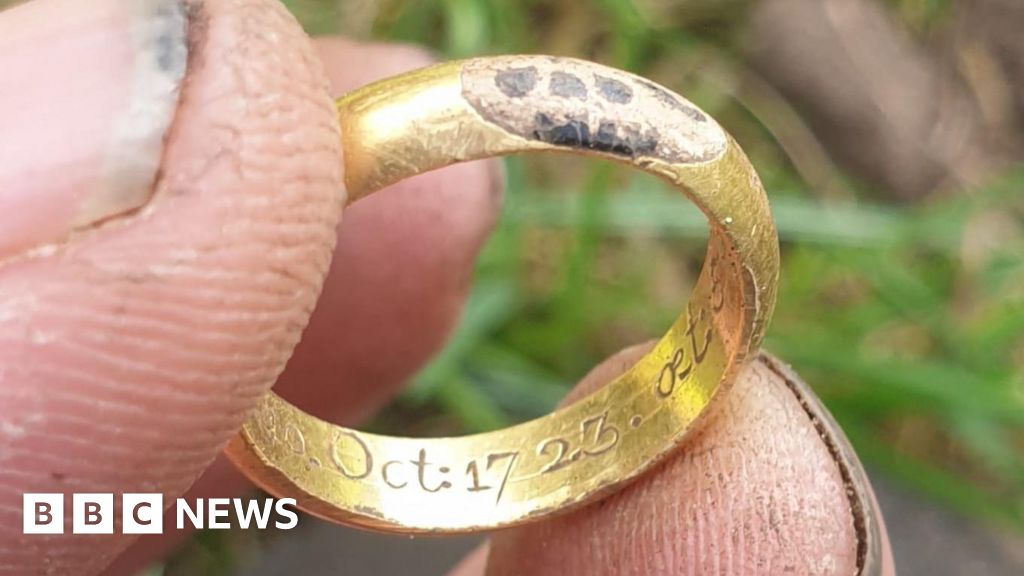Negative
26Serious
Neutral
Optimistic
Positive
- Total News Sources
- 2
- Left
- 1
- Center
- 1
- Right
- 0
- Unrated
- 0
- Last Updated
- 52 days ago
- Bias Distribution
- 50% Center


Metal Detectorist Discovers 18th-Century Gold Mourning Ring in Norfolk
Metal detectorist Malcolm Weale discovered an 18th-century gold mourning ring in a Norfolk field, believed to commemorate Sir Bassingbourne Gawdy, the third Baronet of Harling, who died in a hunting accident in 1723. The ring, inscribed with Latin text indicating the date of death and age, features a distinctive enamel skull design symbolizing "memento mori," and its size suggests it may have been made for a woman or young person, though the original wearer remains unknown. Mourning rings were popular from the 16th century through the Victorian era as memorial jewelry, often adorned with inscriptions and symbolic motifs. Weale, an experienced detectorist since childhood, had been searching the area for 18 months before uncovering the rare find shining six inches beneath the soil. The ring was declared treasure at Norfolk Coroner's Court and sent to the British Museum for valuation, joining other notable discoveries by Weale including medieval coins and Roman artifacts. The find offers a tangible connection to Georgian-era customs and British nobility, highlighting the historical and cultural significance of mourning jewelry.


- Total News Sources
- 2
- Left
- 1
- Center
- 1
- Right
- 0
- Unrated
- 0
- Last Updated
- 52 days ago
- Bias Distribution
- 50% Center
Negative
26Serious
Neutral
Optimistic
Positive
Stay in the know
Get the latest news, exclusive insights, and curated content delivered straight to your inbox.

Gift Subscriptions
The perfect gift for understanding
news from all angles.
